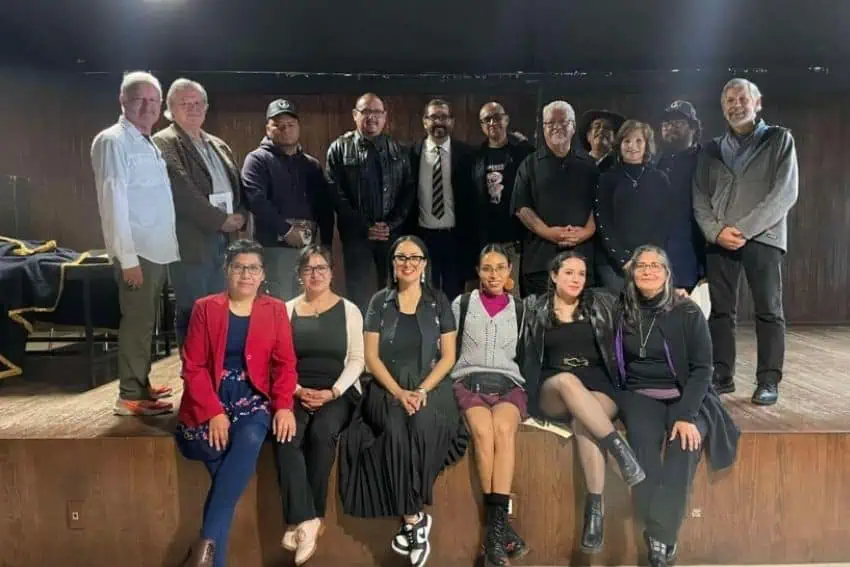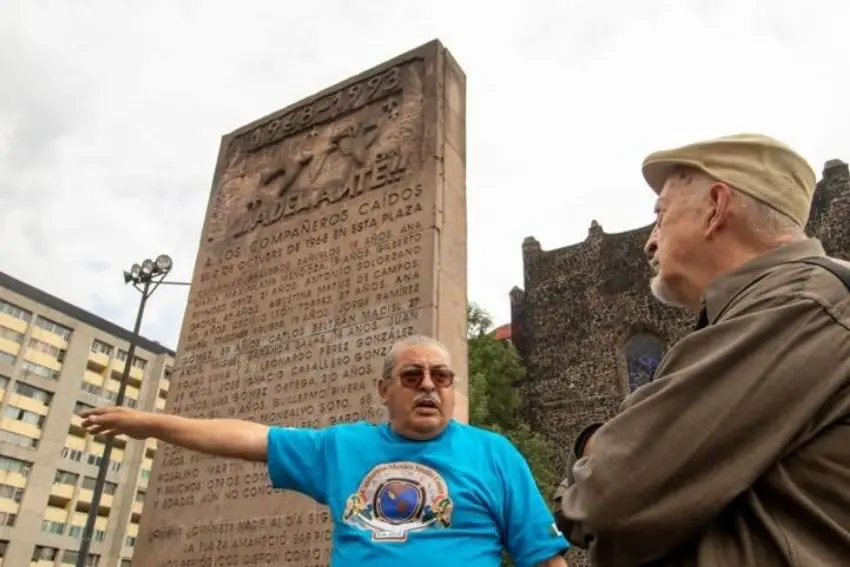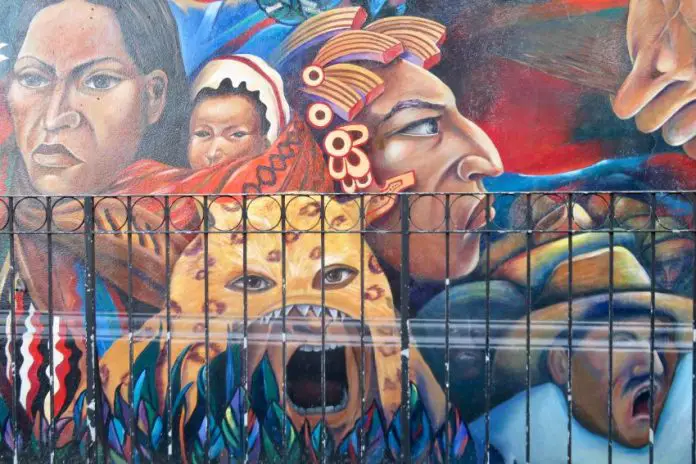Running through Nov. 9, Mexico City is hosting its fourth annual Chicano Cultural Encounter, an event that celebrates Chicano identity through artistic and cultural activities and the links between Mexican Americans in the U.S. and Mexicans in Mexico.
Chicano – or “Chicanx,” the nongendered version of the word used by the event’s organizers in their name – is an identifier for people of Mexican descent born in the United States.

The event is organized by Chicanxs Sin Fronteras (Chicanxs Without Borders), founded in 2022 in Mexico City to create cultural projects that promote Chicano identity and its connection to Mexican culture. Touching on themes like migration, identity and community resistance, the Mexico City event celebrating Chicano culture aims to connect two communities that face similar issues despite being geographically separated.
The event is taking place in 10 different venues across Mexico City, including academic institutions like the National Autonomous University of Mexico (UNAM), art galleries such as the José María Velasco Gallery, and government venues such as the National Institute of Fine Arts and Literature (INBAL).
“Our challenge as a collective is not only to be a bridge between the communities on the other side of the border and this city but also between government and higher education institutions, and community and independent spaces in places like the town of La Candelaria or Tepito, among others,” Alfonso Vázquez, the collective’s founder and event coordinator told newspaper La Jornada.
Vázquez added that one of the main purposes of the event is to counter negative narratives in the U.S. and Mexico about Mexican migrant communities, aiming to highlight the value and contributions of Chicano culture.
“Chicano culture and Mexico City share a common history, but the truth is that most people here [in Mexico] are unaware of what Chicano culture is and who its main representatives are,” Alfredo Matus, head of the José María Velasco Gallery, said in a press conference.
This year’s edition features activities that include art, poetry, activism, and film. The program includes book presentations on migration issues and discussion panels on education, incarceration and deportation in binational contexts.

The event will also pay tribute to Armando Vázquez-Ramos, a leading figure in the study of Chicano culture who became known in the U.S. for creating the first university program to allow Dreamers to study abroad and return to the U.S. legally. He died in August in the U.S. of cancer.
The principles of “carnalismo” (brotherhood) and community empowerment will be showcased throughout the entire program of activities, organizers said.
Artists and activists from both sides of the border will participate in the event, including academics, writers and members of community organizations that work with youth and former gang members in California.
Guests include activists from Underground Scholars, an organization that supports prison education; artists from Homeboy Art Academy by Homeboy Industries, a gang rehabilitation program; and writers such as Carmen Tafolla and Dulce M. López, whose work focuses on the richness and diversity of Chicano culture.
The event is free of charge. Some activities and conferences will be livestreamed on social media, including Instagram, using the handle @chicanxs_sin_fronteras.
With reports from Comentario del Día
